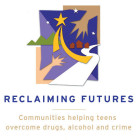
Grants for Chemistry Teachers With Innovative Ideas
|
American Chemical Society will be awarding grants of up to $1,500. The ACS-Hach High School Chemistry Grant is awarded to U.S. high school chemistry teachers to support ideas that transform classroom learning, foster student development and reveal the wonders of chemistry. Applications are accepted annually February 1 – April 1. Applicants for the 2012-2013 award cycle will be notified of their status by June 30, 2012.
In the past, awards have been given for laboratory equipment, instructional materials, professional development and field studies.








